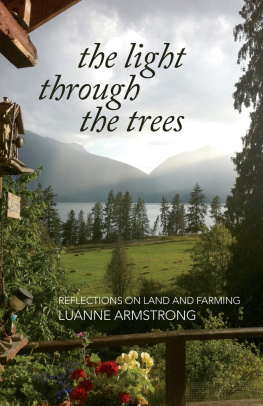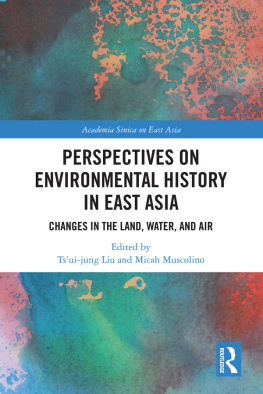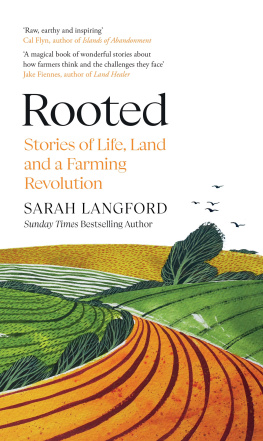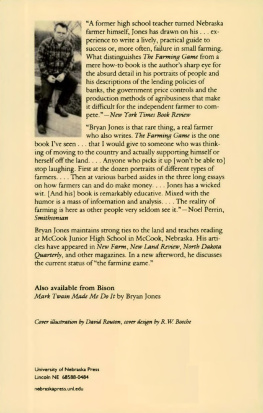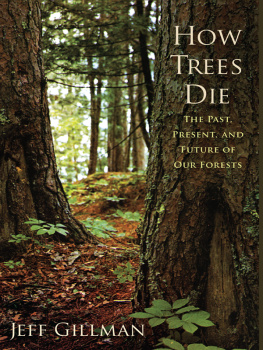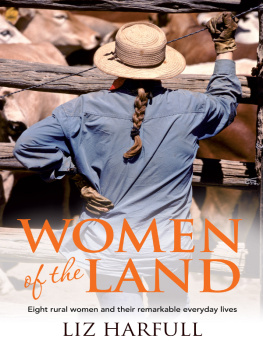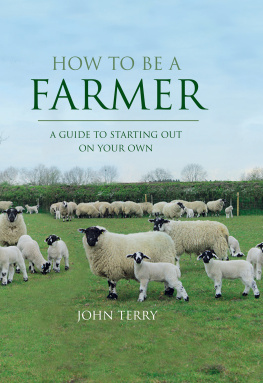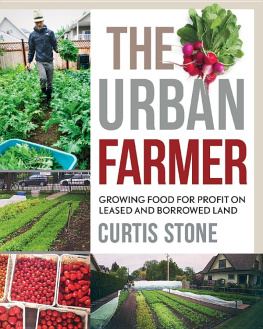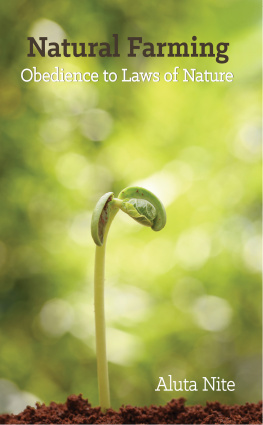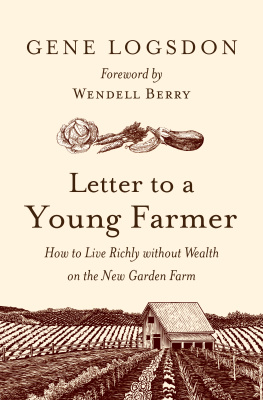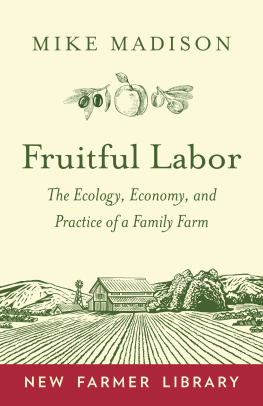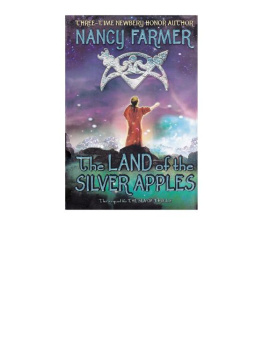The Light Through the Trees
Reflections on Land and Farming
Luanne Armstrong

Caitlin Press
Copyright 2012 Luanne Armstrong
First print edition 2012 by Caitlin Press
All rights reserved. No part of this publication may be reproduced, stored in a retrieval system or transmitted, in any form or by any means, without prior permission of the publisher or, in the case of photocopying or other reprographic copying, a licence from Access Copyright, the Canadian Copyright Licensing Agency, .
Caitlin Press Inc.
8100 Alderwood Road
Halfmoon Bay, BC V0N 1Y1
www.caitlin-press.com
Edited by Jane Hamilton Silcott.
Cover design and EPUB by Kathleen Fraser.
Caitlin Press Inc. acknowledges financial support from the Government of Canada through the Canada Book Fund and the Canada Council for the Arts, and from the Province of British Columbia through the British Columbia Arts Council and the Book Publishers Tax Credit.


Library and Archives Cataloguing in Publication
Armstrong, Luanne, 1949
The light through the trees : reflections on land and
farming / Luanne Armstrong.
ISBN 978-1-894759-95-3 / eISBN 978-1-927575-01-7
1. Farm lifeBritish Columbia. 2. Country lifeBritish
Columbia. 3. Human ecology. I. Title.
S522.C3A75 2012 630.9711 C2012-903334-0
Dedicated with much love to my brother Bill and sister, Robin, with whom I share the farm.
Fresh Tracks
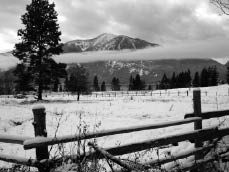
The dog knows. He stands beside my desk, his tail wags very slightly, his fierce collie stare fixed on my face.
Yes, yes, all right. I have been in front of the computer for several hours, teaching a class of writers who live all over the world. I live in the Purcell Mountains, beside the broad, dark expanse of Kootenay Lake. I have lived here on the same piece of land for most of my life except for time out to travel, teach and go to school.
Last night it snowed. Time to go outside, read the new snow, see who has been here, who passed through, who came to visit in the night.
We set offmy dog, my brothers dog and Idown the hill and across the field below my house. The coyotes were here this morning hunting mice in the tall grass. There are deer tracks, raven tracks, and an unknown cat track in the snow. Probably bobcat.
The two black dogs run and run. In Inside of a Dog, Alexandra Horowitz writes that dogs see time differently than humans do. The dogs dont see tracks, they see smells. They know who was here today, and last week. The only time I can somewhat see in the way the dogs do is when I look at the layers of tracks in the snow laid down over the past couple of weeks. Today, the fresh snow has obscured some tracks and revealed others.
And then on down the hill toward the beach where bear tracks cross the path. Late in the year for a bear to be out.
On the yellow sand, edged with ice, more deer tracks, evidence that several deer have been here. From the tracks they left, they might have been dancing. Playing? I dont know.
I stand to admire the glassy sheen of pale water, black rocks crusted with ice, the mountains stippled pale blue and bright white. Two black and white ducks at the point of a thin V on the surface. Few people come to the lake in winter. They miss this beauty. On calm days in winter, the water surface looks glazed, like metal. Just past the beach, a large bald eagle lights in a Douglas fir. The top bends under its weight. The eagles come in winter to feed on the black coots. We trudge up from the beach, up the hill, over the fence and across the pasture and so, home again to tea and darkness coming and some more writing done.
Writing and walking go well together. Walking is always a story, and though I have taken this same walk almost every day for sixty years, each walk tells me a different story. Seasons change, colours change. I meet the other inhabitants of the place or read their stories in tracks, in sounds, in flashes of colour.
When I am writing, and stuck for a new direction, an idea, new words, walking usually brings an idea or some language to get me through to a new place. As Rebecca Solnit says in Wanderlust: A History of Walking, Walking shares with making and working that crucial element of engagement of the body and the mind with the world, of knowing the world through the body and the body through the world.
Walking here unites all the disparate elements of my world, mind and body, human and animal, the past and the present, inside and out. Every walk is a narrative about language and silence, about presence and about forgetting. When I walk, I travel through a place I love and am trying to understand.
Writing about love is hard. A love story tends to always veer into romance, or sentiment, or lyrical grandiloquence. And yet a love story is impossible to avoid. It wants to be told. It trumpets its own eloquence.
Is love even the right word? I write about feeling connected, about the many ways I see this place. And about the many eyes here that also see me? And I also write about what I dont know. What do these non-human others know? What do they see? And how can we see each other past this not-knowing?
I wonder if this is even a relationship, my feelings about this place and its inhabitants. Or is it all a one-way emotion from me, the human stalker, wandering around wanting to be loved? And just what am I doing here, living in this particular place? How do I understand it?
I have asked myself these questions at many odd and various moments. While I bend over the garden, planting. In the spring, breathing on tulips, or listening to a lone frog, both of us awake on a March night. Or in August, listening to the Northern harrier crying over the burned-to-golden summer field as I sit peeling peaches in the hot slanting sun. Watching my farmer self, at harvest, harried by wild turkeys in the grapes, deer in the apple trees, voles in the garden, and the half-grown bear in the pear tree. In the winter mornings, a raven comes by as I throw hay to the cows, standing ankle deep in yellow mud and manure. At night, the dogs and the coyotes yell challenges or greetings or some other message. I listen to exchanges from which I am excluded. What do I know about all this?
Around and around we go, a palimpsest of footprints telling an infinite number of stories, over my lifetime, over so many lifetimes.
If I put my ear to the ground, if I lie down, can I hear the past banging its way under the grass and tree roots? Can I hear the banging of all those other feet coming by? Can I hold eternity by the hand like a child with almost no sense of myself, listening, at last, inside this place? If I werent walking here, would I be walking somewhere else, my head in the sky and my feet shuffling in grass, in leaves? Wondering how to grasp the intricate complexity of a field, a patch of moss, a flower opening. What do I really know?
This fall, I missed the swallows leaving and felt an acute sense of loss. I was interrupted by inattention, by being busy. No excuses. And the ospreys left as well, without saying goodbye. No, it was me who didnt say goodbye, stomping around picking apples and preparing for my own winter. Another year going aroundall year we chase each other, the seasons and I, round and round. I am lost inside and lost outside, occasionally glad to be so lost, and yet often too anxious, driven by time and small worries.

